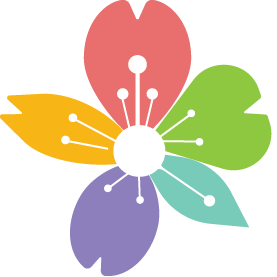
ಮಂಥನ
मंथन
মন্থন
Manthan – the word – means deep introspection, reflection that churns your thoughts and leaves you unsettled. This word comes up in a variety of South Asian languages, including Kannada, Bangla, and Hindi to name a few.
Manthan – this website and project – is a web repository of 15 interviews with scholar-practitioners working in diverse Indian contexts.
This project has been about talking to people working in diverse Indian contexts to understand their perspectives on educational practices, the sociopolitical realities within which they are trying to contribute, and their goals. In doing so, we seek to expand the learning sciences by deepening our understanding of knowledge practices, learning processes, and educational equity beyond western contexts.
To most comprehensively make sense of these issues, we connected with scholars, educational practitioners, and activists who have explored learning and education as it intersects with the social, cultural, historical, and political dimensions of Indian and Indian Diasporic lives. These dialogues offered opportunities to bring into focus what may be taken for granted about contextual specificity. Through conversing with them, we have tried to expand, rather than flatten, the diversity of Indian contexts.Specifically, we actively sought to speak to scholars from minoritized groups and/or those with explicit foci on equity through consideration of issues such as caste discrimination, LGBTQ+ lives, sexism, religious discrimination, Indigeneity, and so on as they relate to education.
We focus on India specifically because all of us have at one point or another described ourselves as “Indian,” and we felt this was a good position from which to explore and complicate what that means (see About Each Author below). Keeping in mind the histories of borders and movement we hope Manthan provides a launching ground to engage and hear from voices across the South Asian region more broadly.
For learning scientists in “the west,” we hope this provides a lively introduction (and only an introduction) to what it would look like to expand the cultural contexts in which we build theory and design for consequential learning. For scholars in India and from Indian backgrounds, we hope this project contributes to theorising, collaborating on, and co-creating justice-oriented learning research in Indian settings. For learning scientists from outside “the west,” we hope our approach can be a seed for similar projects in other contexts. For all readers, we hope this project inspires manthan. We discuss the process by which the interviews were crafted and selected in detail on the Process page.
Interview List
- A.R. Vasavi
 Social Transformation Learning
Social Transformation Learning
Education NGO
Sustainability
Rural Contexts - Anar Parikh
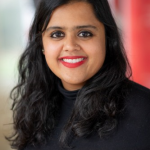 South Asian Diaspora
South Asian Diaspora
Political Anthropology
Citizenship
Race & racialization - Anjali Noronha
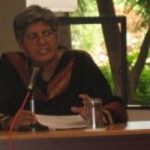 Educational Institutions
Educational Institutions
Politics of Language
Science Education
Curriculum Development - Boro Baski
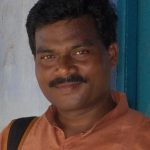 Indigenous Knowledge Systems
Indigenous Knowledge Systems
Politics of Language
Adivasi Cultures
Educational Institutions - Chandan Dasgupta
 STEM Education
STEM Education
Educational Technology
Learning Theories
International Professional Transitions - Chayanika Shah
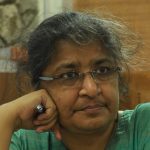 Queerness
Queerness
Gender
Science
Educational Institutions - Farah Farooqi
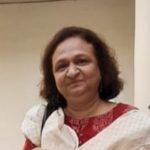 Religion
Religion
Educational Institutions
Urban Contexts
Working Class Students - Farhat Ara
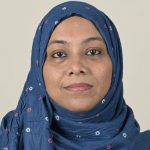 Design Education
Design Education
Design Thinking
Gender
STEM Education - Lalitha Krishnamurthy
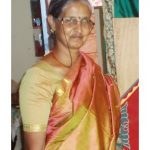 Literacy
Literacy
Teacher Professional Development
Politics of Language
Classroom Dynamics - Murari Jha
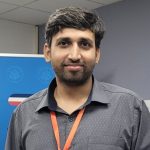 Teacher as Professionals
Teacher as Professionals
Educational Institutions
Student Representation
Teacher Mentorship - Radha Gopalan
 Systems Thinking
Systems Thinking
Sustainability
Rural Contexts
Indigenous Knowledge Systems - Shailaja Paik
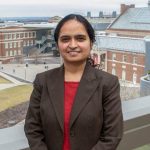 Caste
Caste
Gender
History of Education
Feminist Theories - Tathagata Sengupta
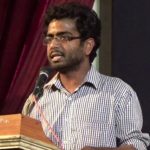 Politics of Math Education
Politics of Math Education
STEM Education
Indigenous Knowledge Systems
Education NGOs
- Vikas Maniar
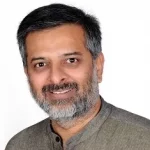 Indigenous Knowledge Systems
Indigenous Knowledge Systems
Postcolonial Theory
Schooling Systems
Capability Approach to Education
Acknowledgments
- Sugat Dabholkar, Adalbert Gerald Soosai Raj, and DurgaPrasad Karnam for helping us improve interview questions.
- Ayesha Bhimdiwala, Ishita Pradhan, Gautam Bisht, Tanushree Sarkar, and Vivek Vellanki for their help in making connections.
- Ayush Gupta for crucial insights and reorientations along the way.
- Priyanka Agarwal and Mamta Shah for being collaborators on the first iteration of this project.
- Members of the South Asian Learning Sciences Research Collective (SALSRC) for discussions and support throughout the initiative.
- Participants in our ISLS 2021 workshop, “Towards a Transnational, Decolonial, and Non-WEIRD Learning Sciences: Implications of perspectives from beyond ‘the west’,” for helping us situate this project in a larger conversation.
- Of course, all who sat for an interview with us.
- The ISLS Affinity & Regional Outreach Grants program for their funding and support of this project.
Funding
This project was funded with support from the International Society of the Learning Sciences (ISLS), Regional and Affinity Outreach Program. Any opinions, findings, and conclusions or recommendations expressed in this material do not necessarily reflect the views of ISLS.
Project-Related Publications
- Dutta, D., Jayathirtha, G., Kumar, V., & Uttamchandani, S. (in no particular order) (2022). Soch: Expanding Indian and Indian diasporic ways of thinking in the learning sciences. In symposium. In J. Oshima, T. Mochizuki, & Y. Hayashi (Eds.), General Proceedings of the 2nd Annual Meeting of the International Society of the Learning Sciences (pp. 9-16). International Society of the Learning Sciences. [Link]
- Members of the South Asian Learning Sciences Research Collective (Dutta, D., Jayathirtha, G., Kumar, V., and Uttamchandani, S., in no particular order). Towards a Transnational, Decolonial, and Non-WEIRD Learning Sciences: Implications of perspectives from beyond “the west” (Workshop). In A. Wichmann, H. U. Hoppe, & N. Rummel (Eds.). General Proceedings of the Meeting of the International Society of the Learning Sciences 2021 (pp. 65-68). International Society of the Learning Sciences. [Link]
Suggested Citation
This website is authored by Deborah Dutta, Gayithri Jayathirtha, Suraj Uttamchandani, and Vishesh Kumar, in no particular order. We prefer to be cited as “Members of South Asian Learning Sciences Research Collective.”
To cite the website as a whole, please use:
Members of South Asian Learning Sciences Research Collective (2022). Manthan. <<https://manthan.salsrc.net>>.
To cite a particular webpage, please use:
Members of South Asian Learning Sciences Research Collective (2022). Webpage Name. URL.
To cite a particular interview, you may use:
LAST NAME, FIRST NAME & Members of South Asian Learning Sciences Research Collective (2022). Interview of {Name} by SALSRC. Manthan. URL.
For example, to cite just the interview with Radha Gopalan, you would use:
Gopalan, R. & Members of South Asian Learning Sciences Research Collective (2022). Interview of Radha Gopalan by SALSRC. Manthan. URL.
